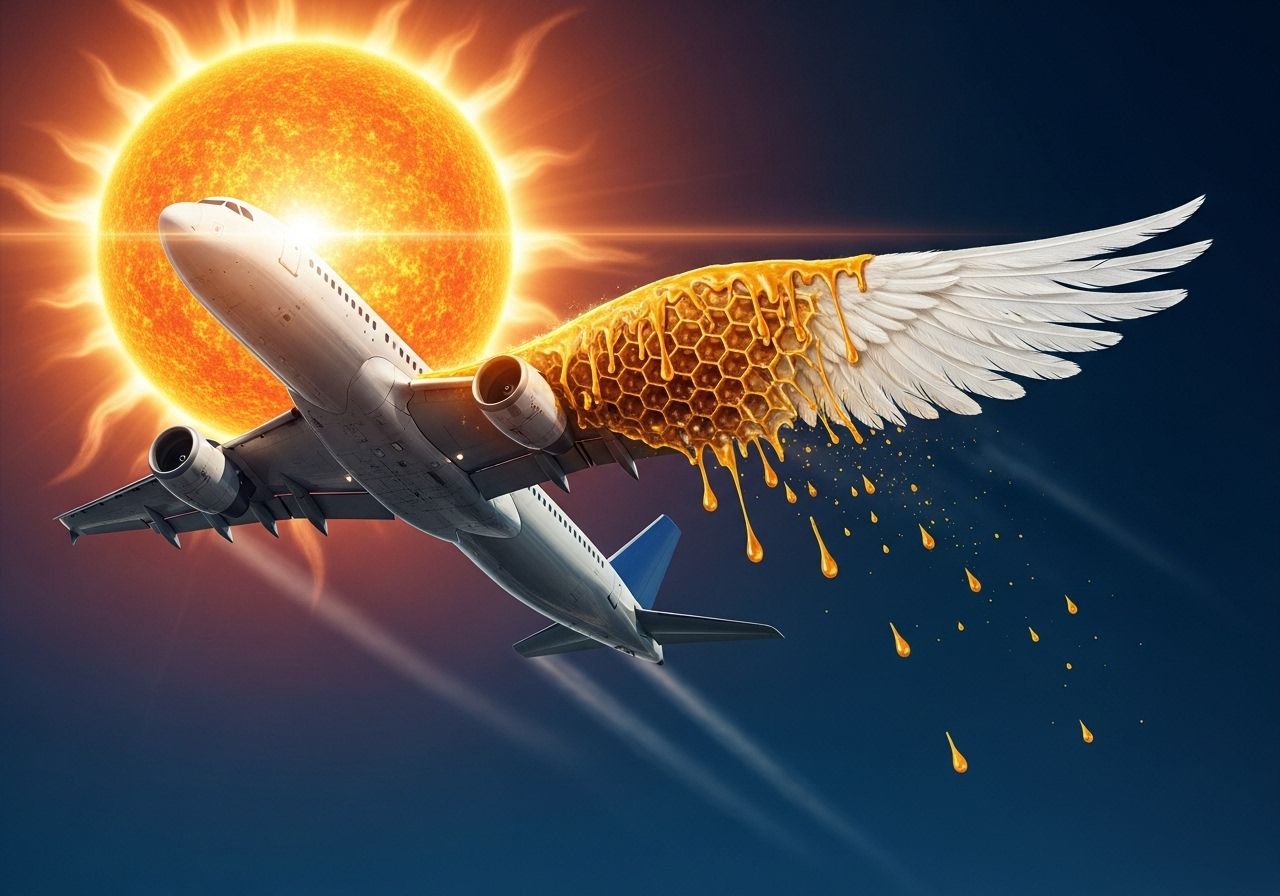
Is this the real life? Is this just fantasy?
Caught in a landslide, no escape from reality…
When you hear Freddie Mercury’s haunting voice ask these questions, it touches upon the fragility of our existence. Much like promises and relationships, our faith and trust can sometimes prove to be hollow. And do you know where we make the biggest investment of this faith? Thousands of feet in the air, sitting inside a pressurized aluminum tube, banking on the belief that the laws of physics and two unknown pilots will bring us back down to earth safely.
But here’s the thing, boss: when that trust is broken, its echo is permanently captured in a black box.
For some time now, whether it’s Ahmedabad or South Korea, the news from the skies has not been good. A tire bursts during landing here, an engine catches fire mid-air there, or, like with Alaska Airlines, an entire window panel vanishes into the atmosphere. These incidents compel us to ask the question: what happens when the technology we so blindly trust betrays us?
To understand this entire matter, let’s look at the science of aviation through a new lens—the lens of classical music.
Any flight is like a classical music composition (bandish). Its rules are strict. It has its own unique ‘raga,’ composed on the principles of Newton and Bernoulli. The pilot and co-pilot are the lead maestros (ustads) of the concert, orchestrating the entire atmosphere. Air Traffic Control (ATC) is the off-stage conductor (sutradhar) who maintains harmony between the various ‘musicians’ (airplanes).
An airplane’s take-off is like the ‘alaap’ of a raga—slow, deliberate, and extremely cautious. Not a single note (sur) should be off-key. Once the plane reaches cruising altitude, it moves in a ‘vilambit laya’ (slow tempo). Everything feels calm, stable, and rhythmic. And finally comes the landing—like the ‘tihai’ of the music. It is the most difficult and most crucial part, where the maestro’s true skill is tested. One mistake, and the entire concert is ruined.
But what happens when this music gets disrupted? A minor technical glitch is like an instrument going out of tune (besur). For instance, a sensor might give a false reading. In most cases, skilled pilots handle it, just as an experienced singer skillfully conceals a brief off-key note. The Tom Hanks film Sully is a prime example of this, showcasing how Captain Sully saved hundreds of lives by landing a plane on the Hudson River. That was the pilot’s artistry, composing a new melody in a discordant situation.
However, when a major issue arises—like an engine failure or structural damage—the entire composition becomes arrhythmic (betaal). The rhythm is shattered. And in that moment, a terrifying dance of fear begins. Like in the movie Final Destination, we realize we have no control over our own lives. We are merely passengers, helpless spectators in a game of fate.
No matter how much science advances, it has never been able to defeat Murphy’s Law: “Anything that can go wrong, will go wrong.” In Greek mythology, Icarus set out to reach the sun with wings made of wax. It was his overconfidence in technology that led to his fall. Today’s accidents remind us of that same Icarus. We set out to conquer the skies sitting in birds of iron we built, forgetting that a tiny technical fault or a single human error can send us plummeting back to earth. Films like Neerja also remind us that sometimes these disasters are not technical, but are born from human-made cruelty.
Ultimately, every disaster brings us face-to-face with the same eternal truth: life is uncertain. No matter how many safety protocols we create or how many checks we perform, sometimes a single dissonant note arises in the cosmic harmony that shatters everything. And in that moment, we understand that beyond science and logic, there is much that lies outside our control.
The Sum of It
In Greek mythology, there was a craftsman named Daedalus. To escape from captivity with his son Icarus, he fashioned wings from wax and feathers. Before taking flight, he warned Icarus: “Don’t fly too low, or the sea’s dampness will weigh down your wings. And don’t fly too high, or the sun’s heat will melt the wax.”
In the thrill of flight, Icarus forgot everything. Forgetting his father’s warning, he flew higher and higher, closer to the sun. The result was what was feared. The sun’s heat melted the wax, the wings disintegrated, and Icarus fell screaming into the sea below.
His father, Daedalus, heard his cries. He looked back, but Icarus was nowhere in the sky. Only a few feathers floated on the ocean waves.
There is no greater tragedy than this about humanity’s ambition to fly and the limits of its technology.



Leave a Reply